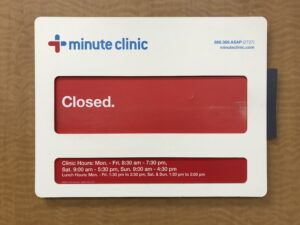
Photo by Shadell Bromell
Collegians may be responsible for placing Tallahassee as the only city in Florida ranked for having one of the highest STD cases in the nation.
Last year, the Center for Disease Control and Prevention released it’s latest Sexually Transmitted Disease Surveillance Report. The full report included ranking tables to track all U.S. States. Furthermore, Innerbody.com’s research team analyzed the statistic through a city basis and developed a list of the top 20 cities with the highest STD rates. Tallahassee is ranked at 14, surpassing other major cities in the state such as Miami, Orlando, Tampa, and Jacksonville.
“First we must look at the population,” says Dale Harrison the Regional STD Program Manager of The Florida Department of Health-Leon County. “Tallahassee has two major universities and a community college which accounts for an additional 80,000.”
Harrison says there are several reasons Tallahassee rates are amongst the highest. He believes the high numbers can also be caused by the living arrangements of students. If a student tests positive for an STD and has residency in Tallahassee, but is from another city, then Tallahassee gets the morbidity count. Even if the student wasn’t infected in Tallahassee, the capital still is punished with the case number.
According to the FDOH’s 5 Year Trend Report (2014-2018), young people between the ages of 15 and 24 years old accounted for 70 percent of all STD’s, but only make up 29 percent of the population. Last year, the total number of STD cases in Tallahassee were 4,393.
“Secondly, racial and ethnic groups (mainly African Americans) have the highest rates of STD,” says Harrison. “Thirdly, poverty and marginalization are factors.”
The FDOH has implemented several initiatives to raise awareness and to intervene in the spread of STD’s in the community. This includes partnerships with community-based organizations in outreach screenings (including FAMU Student Health Services), targeting high-risk zip codes for monitoring, and STD presentations to students in high schools and middle schools.
Additionally, high STD rates in minorities are strongly related to social status. The correlation is due to factors such as income, employment, insurance coverage, and educational attainment.
“This is a ‘college town,” says Karisha McCray, a recent graduate of FAMU. “College students are naturally engaging in sexual activity on a regular basis without getting checked.”
McCray has been sexually active for seven years. She’s received tests and screenings since she began having sex. The graduate believes lack of condoms is a major issue with active college students. She says people who aren’t regularly tested are confident with not knowing their status because they may not have experienced symptoms yet. She also suggests some people aren’t comfortable getting tested because they’re afraid of the results. McCray experienced the heartbreak of losing someone to an STD due to one life-changing decision.
According to the FDOH, if left untreated STDs can cause an increased risk of giving or getting HIV, long-term pelvic/abdominal pain, an inability to get pregnant or pregnancy complications.
In 2018, FDOH reported 105,058 cases of chlamydia, 32,747 cases of gonorrhea and 6,830 cases of syphilis.
“Every time you have sex, you are putting yourself at risk for an STD; every single time”, said McCray. “Also, if you don’t want to get tested alone, go with friends, family, or some loved ones!”
McCray promotes regular screenings and safe sex. She most recently started testing at Care Point near FAMU.
Anyone who has sex is at risk, but some groups are more affected than others. As previously stated, young people are more affected, as well as gay and bisexual men and multiple partners.